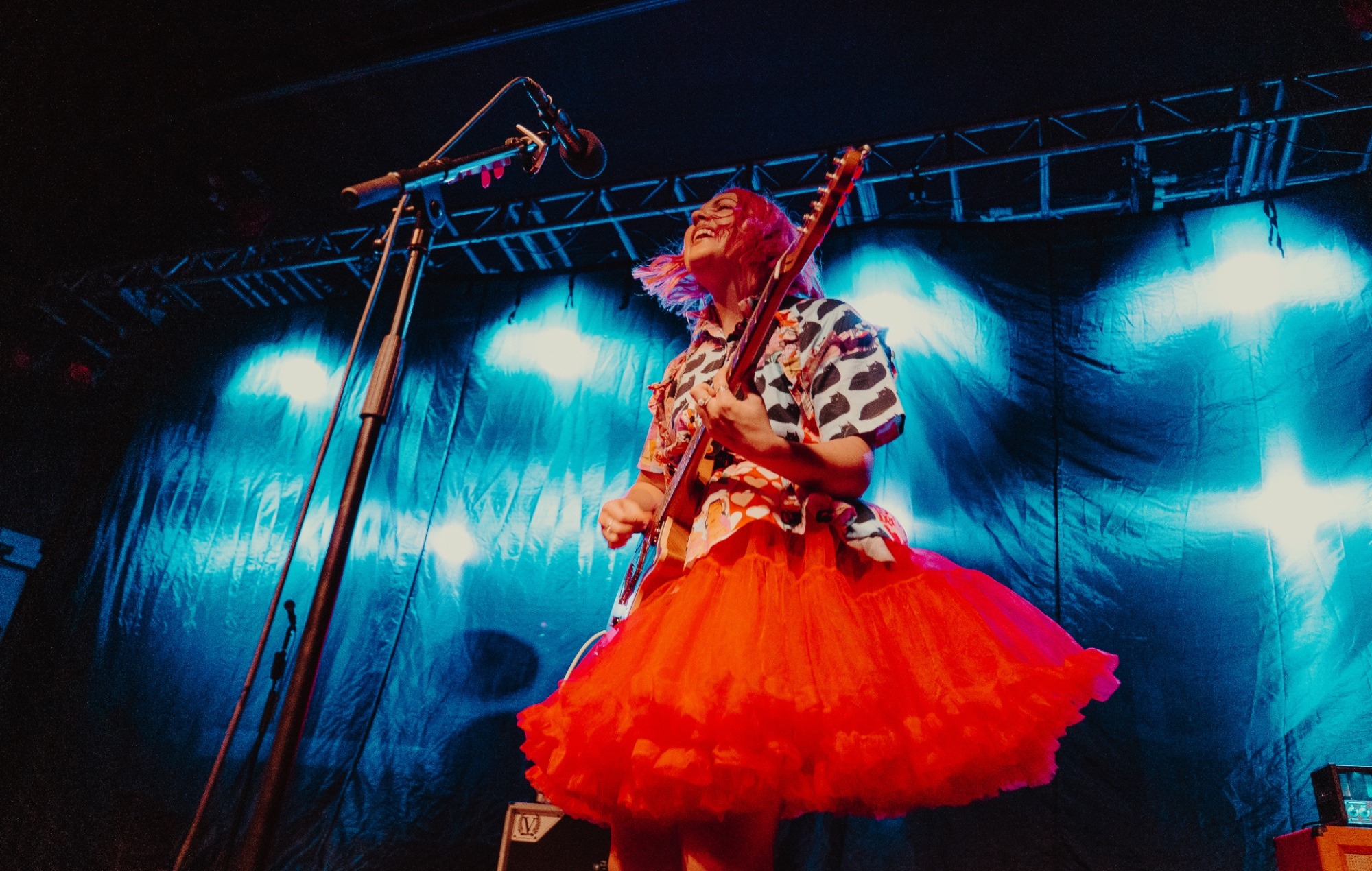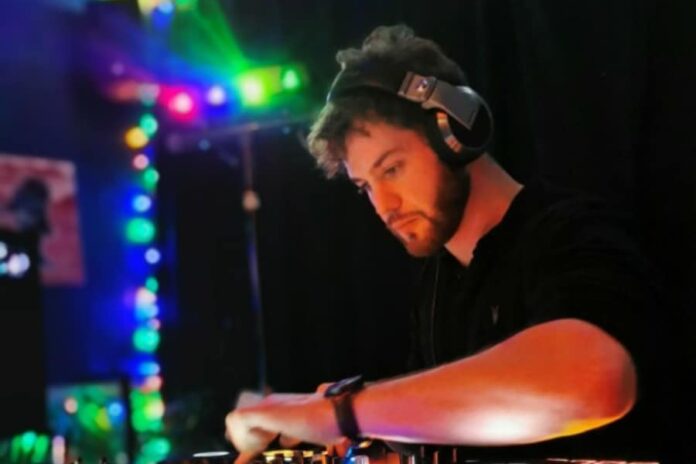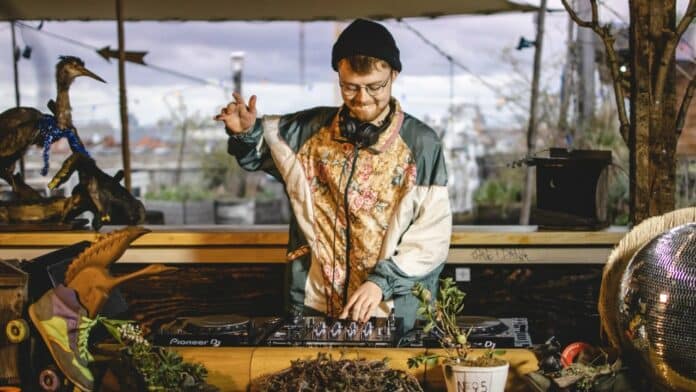
Inside the alarming rise of tour van thefts: “Why should new bands be more at threat of a robbery?”
When Orla Gartland received a phone call from her manager on a day off from touring last month, she was already anticipating the bad news that lay ahead. “My team were trying to leave me alone that day, so my stomach dropped as soon as my phone lit up,” the Dublin-born singer/songwriter tells NME over Zoom today. “I just knew that my gear had been stolen before I even answered. I felt empty.”
Gartland’s worst fears were soon confirmed. On October 16, the day after the 26-year-old and her band had played their biggest show to date — a triumphant sell-out at London’s Electric Brixton — all of their equipment, stage clothes and make-up had been stolen from their splitter van (converted vehicles used almost exclusively by artists to travel on tour), which was parked outside a Travelodge in Wembley. The crime took place in broad daylight on a Saturday afternoon, under a set of CCTV cameras. The vehicle’s door was left hanging open, the inside completely empty. All was lost.
At the time of writing, not a single stolen item of Gartland’s has been recovered. “I was in shock for a few hours. It’s not like I cried straightaway, but the whole situation just felt very overwhelming,” she says. “But I had to quickly spring into action mode and start fact-hunting, as I was worried that I would be too slow to react to the robbery. It was all so surreal.”
Since live music returned to the UK in July following a year of coronavirus-enforced lockdowns, there have been an alarming number of reports of artists and bands who have had their gear stolen while on the road. For new acts in particular, many of whom do not have any form of financial backing, the aftermath of these robberies can be devastating: they rely on touring – and merchandise takings along the way – as a major source of their income. In the era of the gig economy, it’s like having the rug yanked from underneath your feet: imagine turning up to work on a Monday and your laptop was gone?
Touring over the past few months has been a “scary” experience, says Lauran Hibberd, an alt-pop artist from the Isle Of Wight. Post-pandemic restrictions – including regular COVID testing and the formation of ‘bubbles’ to limit contact with those outside of her live band – initially discouraged her from persevering through a summer packed with festival slots. These feelings of uncertainty and anxiety only intensified when Hibberd’s van was stolen from east London’s Docklands area in mid-September.
“After lockdown and the difficult year that everyone has had, particularly the live music sector, it’s been really difficult to get back into touring, even without having to deal with situations like this one,” she says.
“I feel really sorry for bands on a budget because they are more likely to end up in a hotel without secure parking. Why should these bands be more at threat of a robbery? At that level, their equipment probably means more to them than bigger artists – their guitar is their life!”
For Stuart Clarke, who has managed Sports Team since they came to prominence in 2018 with their debut EP ‘Winter Nets’, the “totally inevitable” robbery of the band’s gear during the early stages of their career was largely due to financial constraints. Unable to afford a secure tour bus or sufficient security equipment – such as deadlocks or AirTags, a small tracking device that can be attached to personal items – they had already mentally prepared themselves for the worst before they became victims of van theft while on tour with Two Door Cinema Club in October 2019.
Clarke says that, before the band hit the road, he advised them all about the likelihood of losing all of the gear to theft at some point: “It’s gotten to the stage where you just have to assume that [a robbery] is going to happen.”
A 2019 study carried out by Volkswagen Commercial Vehicles, using data provided by UK police forces, found that van thefts across the country rose by nearly 50 per cent between 2015 and 2019, which equates to 32,056 over those four years or an average of 22 vehicles stolen per day. While the authors’ research didn’t offer an explanation for this increase, they did note that keyless thefts, whereby criminals can gain access to a van by using a relay device that tricks the vehicle’s security systems into thinking they’re using a real key, were on the rise.
Gartland’s “inconsistent and confusing” investigation with the police has suggested that her van was stolen in this way, and she now believes that responsibility for the protection of these vehicles should be shifted to the rental companies themselves.
“In the case of a lot of these criminals, they’re not even trying to target musicians; they’re just trying to break into vans. Most of the time, they get away with power tools and all kinds of random shit,” she explains. Orla suggests that advertising on the side of a splitter van, which reveals its purpose in use for transporting musicians and instruments, could be removed to protect it from opportunists.
Clarke concurs: “When you’re touring in a splitter van, you’re at a level where you’re losing money on tour anyway, and therefore not even making a profit. It’s almost as though these criminals are targeting the artists who can’t afford to lose their gear. It’s an easy win for them.”
“It’s almost as though these criminals are targeting the artists who can’t afford to lose their gear. It’s an easy win” – Stuart Clarke
Sports Team didn’t receive a single follow-up call from the police after they reported the crime. The resulting case – which involved being assigned a reference number, then ringing the police multiple times a week in hope of a positive update – felt “equivalent to reporting that your phone has been lost”, says Clarke. “[Van theft] is not a priority for the authorities by any means. We received very little help.”
After two years of scouring eBay and speaking to various Cash Converter stores – where valuable second-hand items, such as unique instruments, can be traded in and sold – the band and their manager have accepted that they will never know what happened to their equipment.
The feeling among the acts affected by van theft is that they are required to take matters into their own hands. “Being a musician isn’t just about solely being a musician anymore. You’re now a social media influencer, a videographer, a merch designer…” says Hibberd, who, two months on, is still waiting on CCTV footage from the car park where her van was taken.
“So having to be a detective-style figure throughout this situation felt like another thing to add to the list: do I now need to learn how to push through my open case without support from the police?”

Joe Carroll of Maruja, a jazz and rock fusion four-piece from Manchester, agrees that there’s “a real lack of support for young musicians who may find themselves in this position”, adding: “We were shown complete negligence from the local police force, as an ex-officer was ‘leading’ our investigation.”
His band’s story is an anomaly, however. When they set up a GoFundMe appeal to try and reimburse the £6,000 worth of gear that had been stolen from them, they shared the fundraiser across community Facebook groups — but to little avail. That was until One Direction’s Louis Tomlinson chipped in with £4,000 – despite having no previous connection to Maruja.
The band were soon able to head back into the studio to record new music after using the money to replace their stolen instruments and get their van fixed. Carroll says that the donation was particularly meaningful as it was so unexpected, but he is quick to emphasise how they might not have been able to recoup their losses if it wasn’t for Tomlinson.
“I think there should be a better community of support from artists who are bigger than acts on our level,” he says. “We didn’t get any help or advice from any organisations or unions across the industry — all of it came from one kind person. If there was more support across the board, we wouldn’t have to turn to celebrities to help out.”
Gartland, however, believes that calling out the music industry could be a red herring. “I don’t think that even the most powerful person on any record label, or any figurehead of the industry, can really do anything to help in the instance of van theft,” she says. “This is a crime, not a music issue, so it ultimately falls through the cracks.”
Now that live shows are opening back up without restrictions, the safety of both artists and their equipment is of paramount importance as they return to regular and lengthy periods of touring.
Worthing trio NOISY hadn’t ever toured prior to COVID, so having their van broken into within their first month of being on the road was “a real kick to the teeth”, says frontman Cody Matthews.
When they were forced to miss a string of support slots with You Me At Six, the band played a live recording of NOISY’s set over the PA instead of finding a replacement opening act, and left a ‘tip jar’ at the merch stand to help towards recovering the stolen van and equipment. For Matthews, You Me At Six’s support felt “unbelievably special at a time of hardship”.
He continues: “They showed a lot of generosity in the face of such a horrible incident. After we posted an appeal to our Instagram, they helped us to raise awareness of our situation. It got to the point where I couldn’t go on social media without seeing our post being shared.”
NOISY are now advising all new bands to make their equipment distinctive by labelling it with bright stickers, and to take plenty of pictures so that their instruments can be identified easily on resale websites. “What we’ve learned is that you can never become too comfortable,” says guitarist Connor Cheetham.

Some artists are also trying to circumvent the issue by looking at ways to store their equipment overnight. For Do Nothing drummer Andrew Harrison, losing £2500 of gear after a van break-in in February 2020 forced him to think of an alternative solution.
“Where possible, we’ve started to leave gear overnight at venues, as usually somebody can unlock the door and let us in the next day to collect it,” he says. Given that many artists stay in small hotel rooms or at friends’ places overnight while touring, space is often already an issue, so a venue could facilitate the storage of large instruments and equipment.
“I think this should become a prerequisite for touring bands, in the same way that you might ask for a rider,” he continues. “Using venues for storage is something that bands need to stipulate as being a deal-breaker – we need to be provided with somewhere secure to store our gear.”
“What we’ve learned is that you can never become too comfortable” – Connor Cheetham
Renewing your contents insurance policy on an annual basis is essential, Gartland says. “If you’re saving up to buy an instrument, before making the purchase find how much the insurance is going to be,” she says. “Don’t allow anything to come on tour without it being insured: you can’t leave any stone unturned, including laptops and cameras. I’ve lost sentimental stuff, but money-wise, I’ve been saved by the insurance.”
With managers and artists at the grassroots level of the industry now considering if touring is a safe and sustainable way to promote their music, what can be done to raise awareness of the issue?
“People need to keep talking online about the rise in thefts of musicians’ vans and gear,” says Hibberd. “I’m proud of myself and so many other artists for getting through such awful situations with everything against us and nothing in our pockets. We will not let these criminals beat us.”





